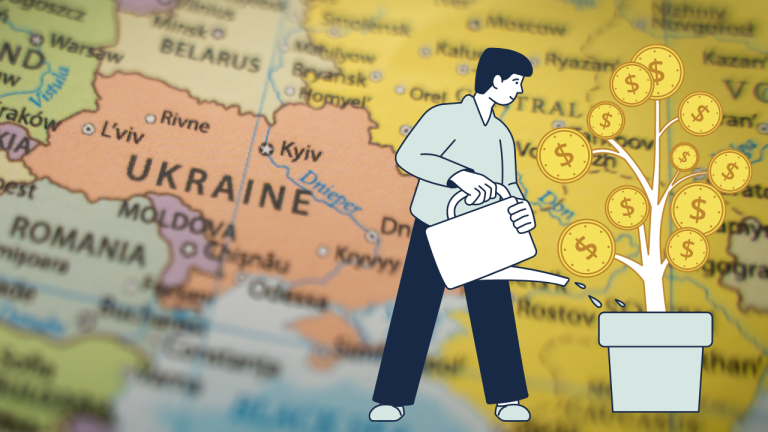Alcoholism is a serious disease that harms not only the ill but also entire families and communities. Yet, the solution is not a selective and arbitrary ban on alcohol sales. Instead, the focus should be on enforcing current laws and making existing state institutions more efficient. The Warsaw Enterprise Institute opposes the proposed ban on night alcohol sales in Warsaw.
On May 6, consultations on a nighttime ban on alcohol sales began in Warsaw. “According to the law, the municipal council may introduce a restriction on night alcohol sales for the entire city or only a part of it. The restriction may cover a maximum period from 10 p.m. to 6 a.m. and apply to stores and gas stations. The nighttime ban does not apply to restaurant outlets. So far, about 10 percent of municipalities in Poland have taken advantage of such a solution.” – according to officials on the Warsaw City Hall website[1]. A month later, Jan Śpiewak submitted a draft of a civic resolution to ban night alcohol sales throughout Warsaw. According to Śpiewak, the ban will reduce brawls and public order disturbances, especially in the city center. However, the project covers all of Warsaw. The ban is a reaction to “Constant brawls, noise, fuss. City guards and police not responding.”[2] The dissonance already appears in Śpiewak’s statement. Instead of strengthening the city guard and police so that they respond and carry out the missions entrusted to them, he proposes to impose a ban, the effective operation of which relies precisely on the above institutions. Thus, the ban attempts to patch up the problem of ineffective execution of entrusted public tasks rather than a proper solution to the problem. It is a simplification. So, let’s look at the problem and the ban’s effects more carefully and through the prism of evidence.
What does data say?
According to OECD data for 2021, the average resident of the European Union consumes 11.3 liters of pure alcohol per year. Poland ranks slightly below the average (11 liters of pure alcohol per capita). In the EU, Romanians, Austrians, Bulgarians, Czechs, and the Baltic people drink more than Poles[3]. As Przemysław Staciwa pointed out in an analysis for WEI, Poland fares more favorably in alcohol addiction statistics – according to the report, 3.7 percent of the population, or about 50 million people, in OECD countries are addicted. Poles rank “at the bottom of the table,” well below the average of G20 countries, where the number of addicts is higher. Moreover, Poland is also only mildly above the EU average in the frequency of so-called heavy drinking episodes. 35.1 percent of people over 15 have experienced at least one such episode in 30 days in Poland, while the EU average is 33.1 percent[4]. Although Poland is on the European average, we have a noticeably higher and worrying record when it comes to alcohol-related deaths. According to Eurostat data from 2021, Poland ranks second in the statistics of deaths from mental and behavioral disorders related to alcohol use. Poland has a score of 10.1 per 100,000 inhabitants. The European average is 3.6[5]. The high mortality rate suggests that Poland’s alcohol problem lies in its failure to help people fighting alcoholism. Banning night sales will not help reduce this infamous statistic.
Ambiguous evidence
The oft-cited example of Krakow might suggest that administrative restrictions are the right solution. In Krakow, a ban on the sale of alcohol in stores applies from midnight to 5:30 a.m. throughout the city. Thus, between July and December 2023, the local government declared a decrease of 47.25 percent in police interventions during the resolution hours, compared to the same period last year, when the Krakow resolution was not in effect. The number of municipal police interventions during the same period fell by 39.86 percent. However, declines in the number of interventions were also observed during the day when the alcohol sales ban was not in effect. According to Demagog: “The new regulations have had an effect not only on interventions at night but also on those made during the day. Police report a 28.68 percent decrease in interventions between July and December 2023, while municipal police indicate that they saw a 4.54 percent decrease in the number of recorded offenses.”[6]
Thus, there is a lack of scientifically sound data and proper interpretation of the declared results. The random data presented cannot be the basis for making decisions in Warsaw’s municipal policies and incurring all the costs of intervention based on them. There may have been phenomena not described by city officials, like vacancies in city guards and police, which could lead to fewer interventions at night. Moreover, these figures are not reflected in the city guard’s annual statistics. Throughout 2023, the number of public order-related interventions in Krakow increased[7]. Thus, there are no reliable statistics or scientific interpretations that the night sales ban works. Therefore, Warsaw’s local government would have been made without a sound problem analysis. This is a trap into which populist activists are leading the city government.
The rich enjoy the benefits of living in the center and pass the costs on to the poor.
In Poznan, where the ban covers only part of the city, residents drive to another neighborhood to make their purchases, increasing nighttime traffic and road noise in other neighborhoods. Thus, the costs and inconveniences of living downtown are passed on to residents of neighborhoods whose residents cannot financially afford to buy property in the city center. Downtown residents bear all the benefits of this privilege, shifting the costs to less affluent residents.
The experience of other regions also shows that bans have little effect, and entrepreneurs suffer. In the municipality of Kartuzy, the authorities abandoned the prohibition of night sales because public order incidents continued, but in bars. Press releases, on the other hand, report the emergence of illegal sales outlets where contraband and moonshine alcohol could easily be purchased. Thus, the effect was the opposite of what was intended. Threats to public health have increased rather than decreased. In Biala Podlaska, the municipality received less revenue from alcohol licenses, so it had fewer resources for anti-alcohol activities. At the same time, residents could continue to buy alcohol in the neighboring municipality[8]. From Poznań and Katowice, where partial bans on alcohol sales were also introduced, reliable statistics are still lacking. Significantly, Katowice residents are reluctant to expand the prohibition zone further [9]. Without verified data collected by state institutions and reliable external studies, the alleged example of Krakow is only anecdotal evidence.
Anecdotal evidence is insufficient to introduce laws that take away economic and consumer freedom.
Element of nightlife
A vibrant nightlife is a magnet for young people and tourists. It is part of the city’s urban fabric, social fabric, and culture. It provides a competitive advantage in attracting young, enterprising, active, relationship-oriented people who will tie their future to Warsaw. At the same time, every city has its good and bad sides, which create the city’s character, especially the center.
However, the city authorities should carry out their entrusted tasks of spatial planning, safety, and public health protection using the tools and means provided.
Introducing the ban is an admission of failure in public management by the authorities.
Entrepreneurs lose
The arbitrary sales ban will hit entrepreneurs. It is precisely because of entrepreneurs who pay taxes, including liquor licenses, that the local government of Krosno withdrew its anti-alcohol resolution[10]. Such bans, advocated by activists, result in gray zones [11]. Alcohol will continue to be sold, only quietly in unsafe conditions outside state control. Businesses and consumers will lose out. Ordinary tax-paying entrepreneurs will be forced to close their non-chain stores, as it was only often the sale of alcohol that allowed them to operate a night store. Thus, the city will lose revenue from liquor licenses. Consumers wishing to drink alcohol at night will be exposed to the consumption of gray market alcohol sold “under the counter,” which will be a public health hazard for which the state is responsible and pays.
Banning alcohol sales in stores at night will also lead to a substitution effect. The experience of the U.S. prohibition has shown that people can easily circumvent any ban. Those who want to drink will do so anyway. Instead of a store, he will choose a bar. Thus, we will not experience the announced effect of fewer public order interventions. Incidents will move to bars and restaurants. The impact on residents will be the same, and entrepreneurs and store owners will lose. The consumer will pay more for the product. Thus, the ban introduced will not solve the alcohol problem of Poles. The restrictive law will benefit various shopping apps and other alternative shopping methods, whose legal situation in the face of the proposed ban is unclear, as noted by the Warsaw City Hall[12].
Authorities must resolve the issue in the interests of the community as a whole and those of privileged groups.
Significantly, asking the privileged residents of downtown about their attitude to the ban is inappropriate and cannot form the basis for a decision of this nature. The center of Warsaw serves not only the residents of the district but the entire city and country. Therefore, imposing even a partial ban in the capital is an unfair, hurtful, and ineffective measure.
Hypothetically, Warsaw residents asked about introducing a ban on protests in the streets of the capital would probably vote “yes” in a survey question. However, this cannot be a basis for introducing a law that harms the civil rights of all residents and the functioning of a democratic state. Similarly, introducing a ban on the subject cannot be grounds for stabbing at the foundations of the free market economy. However, if the applicants already use opinion polls in their argumentation, it is worth citing data for the entire population. Poles are reluctant to see a ban on alcohol sales after 10 p.m. 64.1 per cent of Poles are against such a ban, according to a poll for Dziennik Gazeta Prawna and RMF FM[13].
Prohibition doesn’t work
In countries like Sweden, alcohol sales in stores are strictly controlled. Moreover, the Swedish experience shows that the attempt to control sales through a monopoly and limited opening hours of liquor stores does not affect alcohol consumption. In Sweden, alcohol above 3.5 percent can only be purchased in state-owned Systembolaget stores with short opening hours, closed on Sundays. Despite the heavy restrictions on the sale and access to alcohol in Sweden, its per capita consumption has been increasing since 2000. In 2000, Swedes, on average, drank 6.2 liters per capita, and by 2020, it was already 7.4 liters.
As David Sundén, an economist who analyzes the Swedish model, points out, monopolizing alcohol sales or limiting hours of sale is not supported by the data. Such restrictions only result in bunkering alcohol at home. Swedes buy to stock up, and thus, alcohol is always available at home in large quantities. According to the data, 92 percent of alcohol-drinking Swedes have a stockpile of alcohol at home for up to two months. According to Sundén, the Swedish example shows that short opening hours, fewer stores, and closing on Sundays do not reduce Swedes’ alcohol consumption. They drink as if there were no restrictions[14]. The proposed resolution leads Warsaw toward the Swedish model, which is not working. And the Swedish government is leaning toward liberalizing the monopoly[15].
Analysis of the arguments for the ban
The resolution to ban nighttime sales is a capitulation of city policies and a choosing an easy way. According to the website “Cisza Alkoholowa,” Warsaw’s ban is supposed to increase nighttime safety and street cleanliness, reduce the social effects of excessive alcohol consumption and relieve the burden on EDs. But is it?
Safer nights
The ban on nighttime sales is supposed to reduce the number of interventions by city guards and police, but there are no reliable statistics. It is, therefore, an unfounded assumption. In Krakow, for example, despite the introduction of the resolution, the annual number of alcohol-related interventions has increased[16]. Is the current assessment of insecurity supposed to mean that the city guard and police are failing to maintain public order? Thus, they are not doing the job entrusted to them by taxpayers. So, instead of imposing a ban targeting businesses and consumers, the focus should be increasing the efficiency of the city guard and police. Otherwise, the authorities are escaping a problem they can’t handle. Despite the ban, Varsovians will continue to consume alcohol. They will drink at bars and restaurants or store alcohol in larger quantities at home. Consumption will not decrease. Hence, the argument about safer nights has no validity. There are no reliable statistics, and the ban will not change how services operate.
It should be mentioned at this point that according to many statistics,
Warsaw is one of the safest capitals in the world. There is no basis for regulatory intervention.
Even though residents and tourists feel safe in Warsaw, the city, through the ban, wants to tell the public that it is not coping with the issue of security at night and that the citizens’ feelings are illusory.
Cleaner streets
A night-time ban would also improve street cleanliness, but the question arises whether the ban’s consequences are proportional to the problem of keeping the city clean. Is there data that speaks to the problem of waste management and street cleanliness in the capital? Again, does the city have a problem performing its tasks in this regard? The ban is a disproportionate measure. In this area, there is no data to support anecdotal evidence of the problem other than photographs of alcohol bottles on the windowsills of the capital’s tenements, originating on the Instagram accounts of city activists.
Reducing the social effects of excessive alcohol consumption
Proponents of alcohol silence believe that it will reduce the social effects of excessive alcohol consumption. This is an erroneous, populist conclusion. Instead of in front of liquor stores, we will see the effects of excessive consumption in bars, nightclubs, or homes, where people can consume stored alcohol. There is also the risk of creating so-called “dens” – places for physical or mobile sales, more or less organized distribution. The ban on night sales will only lead to a relocation of the visibility of the effects of excessive alcohol consumption. Additionally, the ban will not improve the situation of those who do not cope with the alcohol problem.
Relieving the burden on EDs
The final argument of proponents is to relieve the burden on EDs. Again, data are lacking on whether similar bans affect admissions at all. The widely publicized conclusions of a study in the German state of Baden-Württemberg, where a 2010 ban on alcohol sales at night was supposed to have “significant health benefits for young people,” are highly over-interpreted and distorted.
According to the study’s conclusions, the ban was expected to reduce hospital stays and medical visits due to excessive alcohol consumption. The introduction of prohibition “on average reduced the number of hospitalizations per 100,000 Germans aged 15 to 24 by about nine people. This meant a decrease of as much as 9 percent in relative terms. As for the number of drinking-related medical visits per 100,000 young residents of the state, this one fell by an average of 5 people, or as much as about 18 percent.”[17] However, looking at the absolute data, this means that per 100,000 people, there were 100 people, or 1 per mile, under the influence of alcohol in hospital wards. Before the ban, 9990 out of 10,000 people were not alcohol addicted who required hospitalization. After the ban, such people were “already” 9991 out of 10,000. Shocking data and headlines creating the phenomenon’s scale, therefore, are based on extremely marginal values and, again, cannot be the basis for intervention by the Warsaw authorities as planned. And here we get to the point – the resolution to ban the sale of alcohol does not solve institutional and social problems.
The essence of the problem
The ban on night sales is an easy way that does not address the source of the alcoholism problem in Poland. Instead of introducing bans in more cities in Poland, work should be done on the performance of institutions that participate in the prevention of alcoholism. Given the increased alcohol-related mortality, improving state services, including police, municipal police, and health care, should also be a priority. Better support for addicts and more effective prevention efforts are needed. One of the main sources of the alcoholism problem is mental problems and lack of social support. Instead of prohibitions restricting economic and entrepreneurial freedom, access to rehab centers and psychiatric clinics should be improved. In addition, city guards and police should enforce existing laws, such as the ban on drinking alcohol in public places and the ban on selling alcohol to intoxicated people.
The fundamental question is: where does the problem come from? The source of alcoholism is often difficulties coping with social situations or mental problems[18]. Focusing on education, improving access to professionals, and fixing institutions can yield more lasting and effective solutions than banning alcohol sales at night. This is a shortcut and an admission by local authorities that they are failing in the areas they collect taxes from us to fund.
Footnotes:
[1] https://um.warszawa.pl/-/czy-w-warszawie-powinien-byc-nocny-zakaz-sprzedazy-alkoholu- [access 13.06.2024]
[2] https://mycompanypolska.pl/artykul/jan-spiewak-chce-nocnej-prohibicji-w-warszawie-projekt-uchwaly-gotowy/15009 [access 13.06.2024]
[3] https://data.oecd.org/healthrisk/alcohol-consumption.htm [access 13.06.2024]
[4] https://www.oecd-ilibrary.org/sites/6e4b4ffb-en/1/3/2/index.html?itemId=/content/publication/6e4b4ffb-en&_csp_=2c8abebfcd351c6cf1626284896818ce&itemIGO=oecd&itemContentType=book [access 13.06.2024]
[5] https://businessinsider.com.pl/wiadomosci/smierc-z-powodu-alkoholu-polska-w-czolowce-rankingu/z7x32m8 [access 13.06.2024]
[6] https://demagog.org.pl/wypowiedzi/nocna-prohibicja-w-krakowie-jakie-przyniosla-skutki/ [access 13.06.2024]
[7] https://demagog.org.pl/wypowiedzi/nocna-prohibicja-w-krakowie-jakie-przyniosla-skutki/ [access 13.06.2024]
[8] https://www.prawo.pl/samorzad/nocna-prohibicja-w-gminie-nie-zawsze-jest-skuteczna,508686.html [access 13.06.2024]
[9] https://businessinsider.com.pl/gospodarka/nocna-prohibicja-sie-sprawdza-zakaz-nocnej-sprzedazy-alkoholu-widac-w-danych/l9t4t0v [access 13.06.2024]
[10] https://www.prawo.pl/samorzad/nocna-prohibicja-w-gminie-nie-zawsze-jest-skuteczna,508686.html [access 13.06.2024]
[11] https://www.rp.pl/opinie-prawne/art38492631-tomasz-pietryga-zakaz-sprzedazy-alkoholu-miedzy-wolnoscia-a-swietym-spokojem [access 13.06.2024]
[12] https://konsultacje.um.warszawa.pl/processes/alkohol/f/193/pages/126#subcontent [access 13.06.2024]
[13] https://www.money.pl/gospodarka/ograniczenia-w-sprzedazy-alkoholu-jedna-grupa-mowi-glosne-nie-7027716479224800a.html: [access 13.06.2024]
[14] https://timbro.se/smedjan/monopol-och-daliga-oppettider-far-oss-inte-att-dricka-mindre/ [access 13.06.2024]
[15] https://www.gazetaprawna.pl/wiadomosci/swiat/artykuly/9521043,rzad-szwecji-chce-zliberalizowac-monopol-panstwa-na-sprzedaz-alkoholu.html#:~:text=Rz%C4%85d%20Szwecji%20og%C5%82osi%C5%82%20w%20%C5%9Brod%C4%99,zliberalizowania%20monopolu%20na%20sprzeda%C5%BC%20alkoholu. [access 13.06.2024]
[16] https://demagog.org.pl/wypowiedzi/nocna-prohibicja-w-krakowie-jakie-przyniosla-skutki/ [access 13.06.2024]
[17] https://onlinelibrary.wiley.com/doi/10.1002/hec.4610 [access 14.06.2024]
[18] https://galmedic.pl/przyczyny-alkoholizmu/ [access 14.06.2024]





